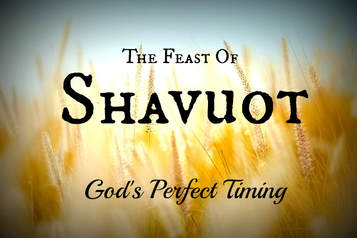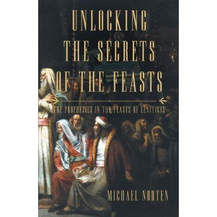 Photo credit: Unsplash Steve Halama
Photo credit: Unsplash Steve Halama
On that Pentecost Sunday the event that Jesus told His followers to wait for happened.
Luke 24:49 NIV I am going to send you what my Father has promised; but stay in the city until you have been clothed with power from on high.”
Acts 1:4, 7-8 NIV On one occasion, while he was eating with them, he gave them this command: “Do not leave Jerusalem, but wait for the gift my Father promised, which you have heard me speak about. He said to them: “It is not for you to know the times or dates the Father has set by his own authority. But you will receive power when the Holy Spirit comes on you; and you will be my witnesses in Jerusalem, and in all Judea and Samaria, and to the ends of the earth.”
Because of what happened this Pentecost marks the day most Christians believe the Holy Spirit descended on the followers of Jesus after his death, resurrection and ascension.
Acts 2:1-5 NIV When the day of Pentecost came, they were all together in one place. Suddenly a sound like the blowing of a violent wind came from heaven and filled the whole house where they were sitting. They saw what seemed to be tongues of fire that separated and came to rest on each of them. All of them were filled with the Holy Spirit and began to speak in other tongues as the Spirit enabled them. Now there were staying in Jerusalem God-fearing Jews from every nation under heaven.
The Apostle Peter stood up and preached his first sermon that day so many Christians think of Pentecost as the “birthday” of the Church.
Acts 2:14-21, 38-41 NIV Then Peter stood up with the Eleven, raised his voice and addressed the crowd: “Fellow Jews and all of you who live in Jerusalem, let me explain this to you; listen carefully to what I say. These people are not drunk, as you suppose. It’s only nine in the morning! No, this is what was spoken by the prophet Joel: “ ‘In the last days, God says, I will pour out my Spirit on all people. Your sons and daughters will prophesy, your young men will see visions, your old men will dream dreams. Even on my servants, both men and women, I will pour out my Spirit in those days, and they will prophesy. I will show wonders in the heavens above and signs on the earth below, blood and fire and billows of smoke. The sun will be turned to darkness and the moon to blood before the coming of the great and glorious day of the Lord. And everyone who calls on the name of the Lord will be saved.’ Peter replied, “Repent and be baptized, every one of you, in the name of Jesus Christ for the forgiveness of your sins. And you will receive the gift of the Holy Spirit. The promise is for you and your children and for all who are far off—for all whom the Lord our God will call.” With many other words he warned them; and he pleaded with them, “Save yourselves from this corrupt generation.” Those who accepted his message were baptized, and about three thousand were added to their number that day.
Some believe the first Pentecost gave all followers of Jesus “the gifts of the Spirit”. Pentecost is the Church’s celebration of the Gift of the Holy Spirit. God’s Holy Spirit empowers us with the love of God, the motivation to obey Him and a sound mind to discern the truth
While Christians celebrate Pentecost as the birthday of the Church they really don't understand it’s significance in God’s plan of salvation beginning with Abraham and reaching its zenith with the death, burial, resurrection, and ascension of Jesus Christ.
Genesis 22:15-18 NIV The angel of the Lord called to Abraham from heaven a second time and said, “I swear by myself, declares the Lord , that because you have done this and have not withheld your son, your only son, I will surely bless you and make your descendants as numerous as the stars in the sky and as the sand on the seashore. Your descendants will take possession of the cities of their enemies, and through your offspring all nations on earth will be blessed, because you have obeyed me.”
Acts 2:29-33 NIV “Fellow Israelites, I can tell you confidently that the patriarch David died and was buried, and his tomb is here to this day. But he was a prophet and knew that God had promised him on oath that he would place one of his descendants on his throne. Seeing what was to come, he spoke of the resurrection of the Messiah, that he was not abandoned to the realm of the dead, nor did his body see decay. God has raised this Jesus to life, and we are all witnesses of it. Exalted to the right hand of God, he has received from the Father the promised Holy Spirit and has poured out what you now see and hear.
Acts 4:8-12 NIV Then Peter, filled with the Holy Spirit, said to them: “Rulers and elders of the people! If we are being called to account today for an act of kindness shown to a man who was lame and are being asked how he was healed, then know this, you and all the people of Israel: It is by the name of Jesus Christ of Nazareth, whom you crucified but whom God raised from the dead, that this man stands before you healed. Jesus is “ ‘the stone you builders rejected, which has become the cornerstone.’ Salvation is found in no one else, for there is no other name under heaven given to mankind by which we must be saved.”

The Feast of Pentecost (Shavuot)
by Michael Norten, excerpted from Unlocking The Secrets Of The Feasts
Editor's Note: Michael Norten in his book Unlocking The Secrets Of The Feasts points out the parallels and contrasts of Pentecost/Shavuot between the Old and the New Covenants between God and His people.
Explicit parallels and contrasts are evident between the Feast of Pentecost in the New Testament and the Feast of Weeks in the Old Testament. The Feast of Weeks is the same feast the disciples observed in the New Testament, known as the Feast of Pentecost. At the first Feast of Weeks, God provided the law. God had given the children of Israel freedom from bondage and slavery, so He then gave them the law to guide them in living.
As slaves they were told what to do by their masters, but in freedom they needed guidance from their new Master, the Lord God of Heaven. It should be noted that God gave them freedom, salvation from slavery, before He gave them the law.
Keeping the law was not a condition for receiving their freedom; it was a response to God’s grace in setting them free.
At the first Feast of Pentecost in the New Testament, God provided His Holy Spirit for guidance. The Feast of Weeks/Pentecost celebrates God’s provisions for life. This feast is observed during the time of the wheat harvest, a major provision of the Lord. In Leviticus 23:15–16 God told the Jews:
You shall also count for yourselves from the day after the Sabbath, from the day when you brought in the sheaf of the wave offering; there shall be seven complete Sabbaths. You shall count fifty days to the day after the seventh Sabbath; then you shall present a new grain offering to the Lord.
A new grain offering was to be offered in the Feast of Weeks:
You shall bring in from your dwelling places two loaves of bread for a wave offering, made of two-tenths of an ephah; they shall be of a fine flour, baked with leaven as firstfruits to the Lord.
Leaven is now introduced to the bread in place of the unleavened bread of the former feasts. But why?
Checking with the messianic rabbis, I discovered a logical answer to this question. While the Passover is referring to God and the purging of sin, the Feast of Weeks or Pentecost refers to God’s people who receive the law and the Spirit. We still have sin in our lives until we receive our new glorified bodies at the Rapture. We read in 1 Corinthians 10:17:
Since there is one bread, we who are many are one body; for we all partake of the one bread.
The two loaves mentioned in Leviticus 23:17 picture the Jew and the Gentile, but we are now one body, “one loaf.” There are a number of other offerings and sacrifices that are presented at the temple at this time as well, and they are applicable to several things, from sins to thanksgivings.
Counting of the Omer
According to Leviticus 23:15-16, the Jews were commanded to start counting fifty days from the day of the Feasts of Firstfruits to the next feast, the Feast of Weeks/Pentecost. During the forty-nine days of this count, which they call “the counting of the omer,” the wheat crop is in the ripening process. By the end of the omer count, the crop is ready for harvest, and the firstfruits of the wheat crop can be brought to the temple for Pentecost on the fiftieth day. Shavuot, the Hebrew name for this festival, means “seven weeks.” This concludes the festival season, which began at Passover. Just as Firstfruits celebrate the ripening of the barley crop, Shavuot celebrates the ripening of the wheat crop.
The Remembrances
The feasts all have a historical significance.
The Feast of Passover is a remembrance of the slaying of the Passover Lamb.
The first day of the Feast of Unleavened Bread is a remembrance of the exodus from Egypt. The Feast of Weeks is a remembrance of the giving of the law at Mount Sinai. The seventh day after Passover, according to tradition, reminds the Jews of the crossing of the Red Sea. The counting of the omer is regarded as a remembrance of the intervening days between the exodus from Egypt and the revelation at Sinai. That is why the Feast of Weeks became known as the anniversary of God’s appearance at Mount Sinai.
On the first Feast of Weeks, signs and wonders accompanied the giving of the law. We read in Exodus 20:18:
All the people perceived the thunder and the lightning flashes and the sound of the trumpet and the mountain smoking; and when the people saw it, they trembled and stood at a distance.
Thomas Lancaster, pastor of Beth Immanuel Sabbath Fellowship in Wisconsin, maintains that the Midrash also makes mention of what took place at the Feast of Weeks when the children of Israel heard the voice of God giving the law from Mt. Sinai. He says that according to the Midrash, a collection of Jewish oral traditions of the things that happened in history, the people in the camp saw sound waves in the form of fiery substances. Each commandment, as it left God’s mouth, circled the whole camp and eventually rested on each Jew personally. He also noted from the Midrash that the people heard God’s voice in many different languages.
Exodus 19:16 states:
So it came about on the third day, when it was morning, that there were thunder and lightning flashes and a thick cloud upon the mountain and a very loud trumpet sound, so that all the people who were in the camp trembled.
The parallels are quite fascinating when we read Acts 2:2–6:
And suddenly there came from heaven a noise like a violent rushing wind, and it filled the whole house where they were sitting. And there appeared to them tongues as of fire distributing themselves, and they rested on each one of them. And they were all filled with the Holy Spirit and began to speak with other tongues, as the Spirit was giving them utterance. Now there were Jews living in Jerusalem, devout men from every nation under heaven. And when this sound occurred, the crowd came together, and were bewildered because each one of them was hearing them speak in his own language.
We cannot prove that everything recorded in the Midrash happened, but we can assume that all the people who were in the room in Acts 2 were familiar with the events. They could immediately make the connection between the Feast of Weeks and their present experience on the day of Pentecost as being of God.
Filling of the Spirit
The concept of the filling of the Spirit has always evoked different opinions regarding its meaning. One thing I observed about filling was that in the Greek there are two different words for the process. In Ephesians 5:18 the word for filling is pleroo, which conveys the idea of growth to maturity or being molded by the Word of God. If we compare Ephesians 5:18 to Colossians 3:16, which discusses the same subject, we can see that “be filled with the Spirit” is the same as “Let the word of Christ richly dwell within you.” Since this command in Ephesians 5:18 is in the present tense, this indicates a continual experience or process. Both phrases have the same result: praise and thanksgiving to the Lord.
On the other hand, pimplemi in Acts 2:4 is in the aorist tense, which indicates a single event or happening. In context, the word implies an empowering for a work of service.
Today, since the Spirit indwells us as believers, we can be empowered by the Holy Spirit in our respective ministries. So the Holy Spirit is doing two major things for us: empowering and maturing us.
It is also interesting to note that when Paul wrote in 1 Corinthians 6:19:
Or do you not know that your body is a temple of the Holy Spirit who is in you,
he used the Greek word naos, which means “the innermost holy place of the Temple where God dwelt.” The other word for temple, hieron, means “the entire temple.” By Paul’s use of the word naos, he wants believers to understand that their bodies are truly the intimate dwelling places of the Holy Spirit.
Further Observations
I was also intrigued by one important contrast between the Old Testament Feast of Weeks and the New Testament Feast of Pentecost. In Exodus 32:28, we find that three thousand men died on the day the law was given, but in Acts 2:41 we read that three thousand people were saved on the day the Holy Spirit was given.
The law brought death, while the Spirit brought life!
It is interesting that the entire Godhead was involved in the fulfilling of the spring feasts. The Son honored and fulfilled the Feast of Passover by His death. The Father honored and fulfilled the Feast of Firstfruits by raising up Christ from death and the grave. The Holy Spirit honored and fulfilled the Feast of Weeks/Pentecost by His descent fifty days after the resurrection of Christ. Now we, in response to the fulfilling work of the total Godhead, can truly serve the Lord in all power and truth!
Excerpted with permission from Unlocking The Secrets Of The Feasts by Michael Norten, copyright Thomas Nelson.


 RSS Feed
RSS Feed